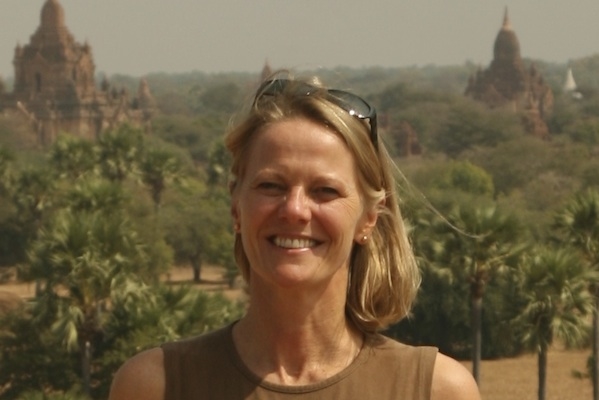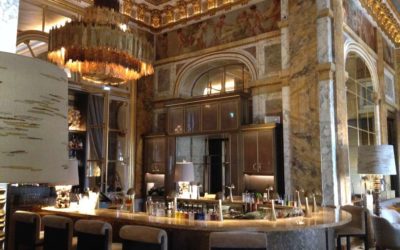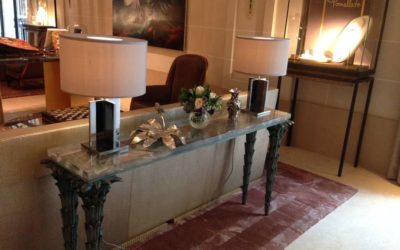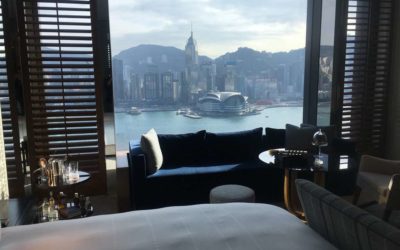Young people redefine themselves as the hermetic nation opens its doors
MNCs are excited about Myanmar. But how can they serve the country? Can brands close the gap between the excitement and doubt of today and the promise of tomorrow for Millennials? Suzanne Godfrey, a partner at Innate Motion, delved into the country’s culture and history to determine the place brands can occupy in people’s lives.
Yamin is an 18-year old law student in Yangon. We meet in the Shwe teashop. “I want to be a teacher,” she says, “But I have to study law, I had no choice.” Yamin earned a place at law school but she has other plans. “I’ll be a teacher and go to Japan. Right now, I teach kindergarten for experience. I’m learning Japanese and English.” Japan, which is Buddhist and feels close culturally, offers work and study opportunities. Yamin has little free time but she is positive, optimistic and carefree.
Last month, we met many Millennials like Yamin — college students and first jobbers — in Yangon, visiting university campuses and shopping malls, in teashops or trendy coffee shops. Millennials are dominant force in bringing Myanmar into the 21st century. But Myanmar’s emergence after years of military dictatorship and isolation brings challenges to its Millennials: Every day they try to bridge the gap between the old days, the new today, and the tomorrow they want to build.
Unprecedented opportunity
With a population of 53 million, Myanmar represents a major opportunity for marketers as it emerges from isolation. It is one of the few remaining “white spaces.” Its two main cities, Yangon and Mandalay, are thriving. ATMs wait on every street corner. Modern coffee shops dot the busy streets.
But Myanmar has the lowest Human Development Index rankings (life expectancy, income, education) in Asia. Decades of political strife and civil war have left the country ill-prepared to compete. In Yangon, rickety public buses and trains are often the only transport. The school system cries out for radical reform. Learning is by rote. Students graduate from college with worthless degrees and poor qualifications. Myanmar’s Millennials know the sorry state of their education, so they take additional classes, self-learning courses, second degrees or vocational training, preferably overseas with accredited qualifications.
Traditional roots
Myanmar’s Millennials have a pride brands can tap into. But like all Myanmar people, they tend to hold onto the culture and traditions they know. They struggle to embrace change. According to Mya, a 22-year old engineering student, “We care about our traditions, our Pagodas and temples, dance, food and dress. I feel more comfortable wearing traditional clothes.”
This typical pride in their culture has not been lost on local brands like Myanmar Beer and Royal Myanmar Tea, both of which celebrate the country’s rich culture, craftsmanship and traditions, while presenting themselves as modern and aspirational. International brands like Telenor, a Norwegian telco brand, also respect the country’s traditions, building an identity that resonates with Myanmar’s deep-seated cultural values.
A new generation
The Millennials we met navigate between hope and fear. On the one hand, they are optimistic, outward looking, adventurous and progressive. As Than observes, “Life has improved. There are more business opportunities and chances to study abroad. The internet has opened things up and creates new, greater freedoms.” In two years, Internet infrastructure has developed enormously. Mobile phones, particularly Chinese brands, are becoming commonplace. They connect this generation like never before, inside and outside the country.
There is individualism and freedom of expression: gay couples openly wander the malls, and transgender make-up artist ‘My Htet’ captivates TV audiences. Yet doubt about the future remains. The dark past seems close at hand. Thet, for example, came to Yangon from Northern Myanmar to finish his studies and work. He says that “life now is OK, but it could go back to the dark ages.”
Embracing opportunity
Entrepreneurial ambition fuels the country’s Millennials. Phoo was inspired by a cousin who visited from overseas with the most beautiful Prada bag. She wants ” … to be a famous fashion designer, travel abroad, make a lot of money.” Others share Phoo’s earnestness and ambition, so they equip themselves with bankable skills and experience: learning English, teaching part-time, taking computer courses, signing up for second “distance learning” degrees.
May is 23 years old and works for a charity for children. But she also tells me, “I help the family with the dairy business, my sister with household chores. In the evenings, I go to a tailor to learn dressmaking and take in clothes to finish. In my free-time, I take computer classes and teach myself English for when I have my own business.” There is an innocence in all this doing that seems almost naïve.
Myanmar’s Millennials are flying blind. They grasp at what life has to offer, but uncertainty eats at them. Kay, a 19-year old student has high ambitions, “I want to be a GM of a company, be admitted to a US university, get sponsored … ” Yet he struggles. “How will I improve my English when I’ve no time to go for language courses? How can I be confident to live in a foreign country when I don’t have time to practice my people skills?”
Dual lives
Amid all this ambition and doing, there is a gap between reality and dreams. Khaing wants to be a nurse but does engineering. Yamin is a law student but wants to be a teacher. Myat longs to be a cartoonist but works in IT. The system has herded them into studies and jobs they don’t want. Every day they live a false identity. So, how can they discover themselves and navigate this new and turbulent world?
Where brands come in
From Ovaltine to Sunkist, Telenor to Nescafé, Colgate to Red Bull — brands are helping Myanmar’s Millennials bridge the gap. They go beyond providing the basic functional needs for getting through the day (nutrition, protection against sickness, energy and strength) by fulfilling emotional needs. They bring fun and happiness into Millennials’ lives. They help celebrate togetherness, inspire discovery of new horizons, and help Millennials emotionally on their journey to create the better lives they dream of, for them and their families.
Nescafé, a brand with a long presence in Myanmar, motivates a generation of young people with Nescafé Red. A lively rock ‘n’ roll anthem, sung by renowned rock singer and Nescafé endorser Lay Phyu, inspires Millennials to keep their spirits alive and minds refreshed to move forward in life. The idea: Successful journeys start with Nescafé. On the other hand, Nescafé 3 in1 Creamy Delight offers working women not just goodness and mental renewal but also a moment of pleasure, (deserved) self-indulgence. Nescafé’s advertising, activation programme and strategy strongly support both functional and emotional messaging.
Brands like Nescafé provide Myanmar’s Millennials with stories and cultural narratives. They guide and inspire them. Key to the market is an effort to provide simple identity markers that help Millennials build a future while nurturing the past. Brands that take the time to hone in on this dynamic in the culture are the ones most likely to be successful.

Suzanne Godfrey: Millennials in Myanmar have entrepreneurial ambition.
Note: Names have been changed for confidentiality reasons.




